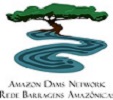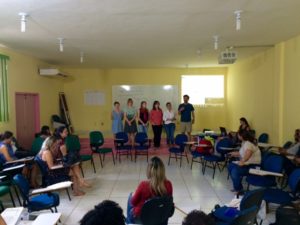Background
In the summer 2016, the WIGF students collaborated with Professors and researchers at the University of Rondônia (UNIR) to organize a 2-day interdisciplinary workshop that was held May 23-24 at UNIR in Porto Velho. The guiding question of the workshop was: How can we collaborate to advance our understanding of dam related impacts in the Brazilian Amazon?
Goals
- To promote interdisciplinary and cross-cultural research coordination and collaboration
- To share ideas about important research gaps and needs regarding the construction of large dams for hydropower in the Amazon
- To share the status of ongoing research projects and directions
- To discuss difficulties and issues associated with research in Porto Velho and in Brazil by foreign researchers
- To foster sharing of relevant literature in English and Portuguese on the topic of hydroelectric dam construction in the Amazon
- Discuss data sharing and ethics in research partnership for future collaborations
- Discussion and creation of Memorandum of Understanding for future research collaborations and publications
Activities
This first day of the workshop was devoted to the introduction of the research programs at the partner Universities and introductions of the backgrounds and research interests of workshop participants. Shared interests identified there were the basis for the group work on the second day. The second day started with activities to explore grounds rules, barriers to cooperation, and development of a memorandum of understanding. In the afternoon, small groups worked on some topics of shared interests. The groups were asked to explore the following questions:
- Re-introduce in more detail the work and research interests of the group.
- What are the main research questions of this line of research?
- What are the methodologies and approaches being used to answer these research questions?
- What are the main research gaps related to the over-arching theme?
The five topical groups included: Hydrology/sedimentology/geomorphology; Forest Ecology; Fish and Fisheries; Development; and Social. The groups presented their results at the end of the workshop.


